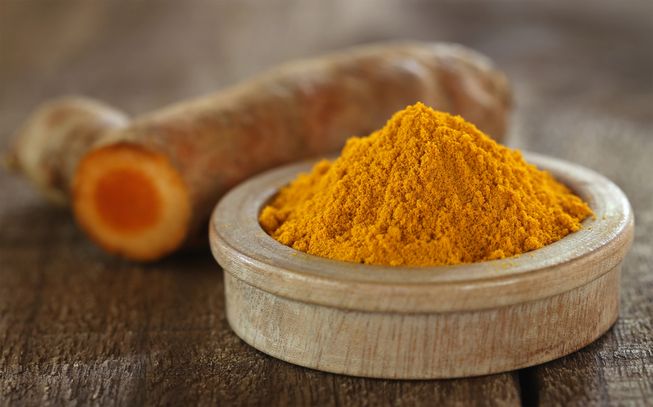
Advertisement
Ginger is easily one of the most recognizable spices in the world. With its brown, corky skin and peppery sharp, pungent smell, the root of Zingiber officinale is hard to mistake for anything else — except perhaps, its cousin, turmeric. But while the two spices share almost the same outer appearance, the rich golden-yellow to orange flesh of turmeric easily gives it away. Ginger — in case you’re in doubt — has a creamy to deep yellowish-brown inner flesh. It also has a stronger scent than turmeric.
Ginger is considered an herb as well as a spice. This is because centuries ago, this extraordinary root was first used as medicine instead of as a culinary ingredient. Discovered in South Asia, ginger was already widely known in Ancient China for its healing properties long before it was introduced in East Africa, the Caribbean and Europe. When it eventually made its way to the Roman Empire, ginger became highly regarded more as a symbol of wealth than the versatile spice it is today.
Ginger as a culinary spice
According to modern studies, ginger has plenty of medicinal properties and comes with amazing health benefits. For these reasons, scientists will always look at ginger as an herb instead of a spice. But before we dissect everything that makes it an herb, here are some fast facts about ginger, the aromatic spice that gives food a spicy but slightly sweet zing.
The 7 culinary forms of ginger
Fresh ginger root and commercial ginger powder are familiar concepts. But did you know that ginger’s sold in seven different ways? Here’s how:
- As crystallized ginger — Think candied, as in coated with caramelized sugar. Instead of an ingredient, crystallized ginger is more of a dessert.
- As dried ginger — Simply put, it’s fresh ginger root that’s been dried out. While you can use it as a substitute for fresh ginger, it unfortunately has a weaker flavor, so you’ll need to use more of it in your recipes.
- As ginger oil — This is useful as a home remedy for the skin and hair and for aromatherapy. But some people also use ginger oil to make infused cocktails and mocktails.
- As ground ginger — Ginger in this form is easy to use and has a longer shelf life. But it also has a weaker flavor, so use double the amount you would for fresh ginger.
- As pickled ginger — A familiar side dish in Japanese cuisine, pickled ginger is often served as bright-pink strips with hints of the sweet vinegar it was soaked in. More on this in the next section.
- As preserved ginger — This is ginger preserved in a solution containing salt and sugar. It is highly recommended for desserts and salads.
- As raw ginger — This can be grated ginger, chopped ginger or plain ginger juice. Use it to flavor practically anything you can whip up in the kitchen, from breads and baked goods to soups and even smoothies!
Ginger as a palate cleanser
If you’ve ever been in a traditional sushi bar, you may have noticed that you’re given a small amount of pickled ginger, or gari, in-between each serving. The purpose of this is to cleanse your palate. Different fish have different tastes, although the difference may be subtle. But that’s why you need to eat some pickled ginger after every dish — so you can taste the difference!
And in case you’re wondering why there’s also pickled ginger in your bento, it’s supposed to help refresh your breath.
Ginger as an herb
Ginger’s long history of use as a traditional remedy is a huge part of the reason why it qualifies as an herb. If this is news to you, headaches, pain, nausea, vomiting and motion sickness are some of the most common complaints for which ginger is used.
But thanks to the efforts of researchers over the past decades, we now know that ginger can be used to address more serious health problems, such as bacterial and fungal infections, nerve inflammation, side effects and complications of chemotherapy, and even some types of cancer.
In a recent article published in Nutrients, South Korean and Vietnamese researchers reviewed the beneficial effects of ginger on human health. In order to gather high-quality and unbiased evidence, they searched for and carefully selected randomized controlled trials (RCTs) that tested the effectiveness of ginger against various types of ailments.
Here’s a summary of what they’ve found:
Ginger can benefit cancer patients, pregnant women and postoperative patients
Nausea and vomiting are two symptoms that cancer patients, pregnant women and postoperative patients all suffer from. But according to multiple studies that looked at these cases separately, ginger is more effective at reducing the severity of nausea and preventing vomiting than any other treatment, including vitamin supplementation and the use of modern medications.
Ginger has protective effects on the digestive system
According to six of seven different RCTs, ginger is a great digestive enhancer that promotes gastric emptying. This means that ginger can make food leave the stomach and enter the small intestine at a faster rate. Delayed gastric emptying is the cause of vomiting, stomach pains and an unhealthy weight.
Four RCTs also found that ginger has anti-cancer effects against colorectal cancer. In one of the studies, patients with a high risk of colorectal cancer experienced significant risk reduction after taking ginger supplements. The researchers found that this is all thanks to ginger’s ability to influence certain cell functions and make cancer cells less likely to survive.
Ginger can help relieve pain
Six RCTs that looked at the effects of ginger on primary dysmenorrhea — menstrual pain — found that ginger is an effective pain reliever. In fact, four of the six trials reported that ginger’s effectiveness was comparable to that of oral medications, such as mefenamic acid, ibuprofen and zinc sulfate.
When it comes to muscle pain, migraines, headaches, low back pain and chest pain, several RCTs also concluded that ginger is a great alternative medicine for pain relief.
Ginger can help reduce inflammation
Inflammation is an immune response that has been linked to a variety of diseases. According to six studies involving osteoarthritis patients, ginger supplementation can decrease the production of pro-inflammatory molecules considerably. What’s more, ginger doesn’t cause any adverse effects, unlike anti-inflammatory medications commonly prescribed to treat osteoarthritis.
Ginger can help improve metabolic health
Five studies looked at how ginger can help with Type 2 diabetes and obesity. According to three of the five studies, ginger effectively reduced the fasting blood sugar, glycated hemoglobin and insulin resistance of diabetics. Ginger also lowered their blood cholesterol and inflammatory markers while increasing their natural antioxidant levels.
When it comes to obesity, ginger supplements helped obese women lose a bit of weight while increasing their sensitivity to insulin. Ginger also lowered obesity-related risk factors, such as body fat mass, body fat percentage, total cholesterol, waist circumference, waist-to-hip ratio and insulin resistance. These findings suggest that eating ginger can benefit people who are suffering from serious metabolic disorders.
Ginger is both a versatile spice and a medicinal herb that can serve you in a number of ways. With its strong flavor and wide array of health benefits, ginger can make any dish tastier and healthier. Ginger is also a great herb to have in your pantry or plant in your garden so you can have an all-around home remedy for various health problems. These include common ones like pain, nausea and vomiting, and more serious ones, such as inflammatory conditions, digestive issues and metabolic disorders like diabetes and obesity.
Sources:
Advertisements







